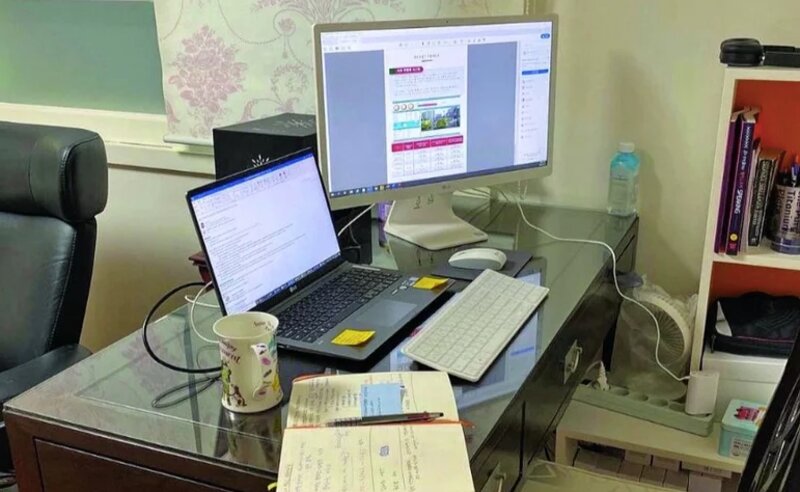The rapidly evolving situation also prompted StradVision to pull back from customer contact. In February, a product team was supposed to visit with a potential new customer in Japan to demonstrate its product. But before its engineers left from South Korea, news broke of an outbreak in Tokyo. The demonstration was postponed.
StradVision then escalated its safety plan and began preparing all employees globally to work remotely. It ordered staff to use the Zoom, Slack and Skype Internet communication platforms to allow employees to telecommunicate. By the first week of March, a mandatory work-from-home order was in place, Lee said.
But a fourth of its employees could not immediately telecommute. Those staffers were required to seek individual approval to go into the office.
By mid-March, 90 percent of the staff was working from home. StradVision management continued to worry about the 10 percent who were not yet doing so. For them, the company began subsidizing taxi service to the office rather than let employees risk the environment of mass transportation.
The clampdown on personal interaction also crimped another crucial activity for the supplier: employee recruitment.
StradVision’s business growth has increased the pressure to recruit more workers. But the new distancing effort not only meant postponing planned job interviews, it also meant delaying the start dates of five badly needed employees, Lee said.
Those new hires went briefly into the office one day in February for onboarding information. But the visit was restricted to only a few critical employees to limit time in the office. Even the new employees were tasked with projects they could undertake from their homes.
The company has resumed recruiting conversations, but those interviews now occur solely via Web conference call.
Lee says some initially thought StradVision was overreacting to the crisis. But the feeling internally was that the young company needed to move aggressively to protect its human resources and the business progress it had made.
“None of us had an objection that we should right away take very proactive actions,” Lee said.
Less than three weeks later, other global suppliers were reaching decisions similar to StradVision’s.
But most automotive suppliers were not as free to implement work-from-home policies and wind down operations, in large part because of the differences among their products. Other traditional global suppliers have slowly arrived at the need to shut down, including Delphi Technologies, Nexteer Automotive and Benteler. But as a new-age automotive software company, StradVision is far more nimble in where its work is performed.
And StradVision’s early transition to remote work was not seamless, Lee said. She said it took some time to get workers outside of South Korea full access to company servers. And cybersecurity concerns, she said, have required ample attention.
“It’s down to the decision between flexibility and risk, such as a cyberattack,” Lee said. “As a business leader, you need to understand: What is the decision point?”

